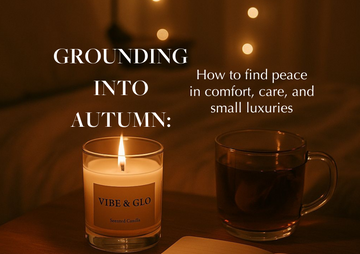The Courage to Be Vulnerable: How Can We Embrace Vulnerability to Live More Fulfilling Lives?
Humans have always needed to connect with one another. For most of our history, fitting in with the group was essential to survival—cooperation improved our chances against food shortages, predators, and enemies. There was safety in numbers. Even in today’s modern, sophisticated, and technologically savvy world, that instinct remains strong. We’re still social animals.
From the moment we’re born, we appeal to our parents for food, warmth, love, and shelter. As babies, we rely on our caregivers to respond to our every need in order to survive. We are vulnerable. We don’t play pretend—we let others know what we need by crying and demanding attention. We’re real. Authentic in our feelings. But as we grow up, we become more aware of what others might think when we share our true needs and emotions. We learn to adapt in order to be loved—by showing good manners, being kind, liking certain things, or achieving high grades at school. In short, we become the ‘nice person’ others will like. In doing so, we often showcase only the best parts of ourselves, choosing to keep our less ‘likeable’ feelings to ourselves. We learn to forfeit being wholly true to ourselves in order to fit in. But is that the most fulfilling way to live?
Dr. Brené Brown, a research professor at the University of Houston, thinks not. For the last two decades, she has studied vulnerability, shame, courage, and empathy. She discovered that social work was about “leaning into the discomfort” and allowing others to find their own way. As a born fixer, that didn’t sit well with her at first. But armed with her academic understanding that connection gives life meaning, she pursued this path.
Interestingly, her research participants didn’t want to talk about connection. They spoke instead of disconnection: broken hearts, being let down, isolation, and shame.
Not Good Enough
Shame is something we all feel—except for those unable to feel human empathy—and it can eat away at us, whispering that we are not thin enough, rich enough, smart enough, fashionable enough, young enough, mature enough, pretty enough, athletic enough… simply not enough to belong.
Modern culture amplifies this. Advertisements suggest what we should worry about, then offer products to fix us. Social media invites us to compare our lives against carefully curated highlights of others’ best moments. We crave likes as validation, but recoil when someone disagrees with us or calls us out.
Brown says shame nurtures an “excruciating vulnerability.” It becomes a psychological barrier that prevents true connection. Yet her groundbreaking work shows that when we learn to nurture and share our vulnerability, we live better, fuller lives. She shares this message in her now-famous TED Talk, The Power of Vulnerability.
Shame Resilience
Some people are more resilient to shame—a discovery that prompted Brown to investigate what set them apart. She called these individuals “wholehearted” and found they lived with a strong sense of being worthy of love and belonging, regardless of life’s challenges.
She summed up their mindset as: “Yes, I am imperfect and vulnerable and sometimes afraid, but that doesn’t change the truth that I am also brave and worthy of love and belonging.”
Of course, this doesn’t happen by magic. Wholehearted people work at it. They live with daily courage, compassion, and connection. They have the courage to be their true selves, the compassion to treat themselves and others with kindness, and a deep commitment to building genuine relationships. And they recognize vulnerability as the catalyst for all of it.
Brown’s research was transformative—but also personally confronting. When she compared her own life to the wholehearted people she studied, it unraveled her. She sought therapy to reconcile the difference.
How to Develop Resilience to Shame
Brown believes shame is too powerful to overcome completely—but we can build resilience to it. Her research highlights four practices that help:
-
Become mindful of what triggers shame and how it feels.
-
Listen to the messages shame is sending—are they true or distorted?
-
Connect with others and share what you’re experiencing.
-
Talk about it.
These actions often feel like the last things we want to do. Shame makes us want to hide, please others, or get angry. But Brown urges us to “trust the process.” When she experiences her own “shame storms,” she reaches out to someone she trusts, treats herself with compassion, and “owns the story”—acknowledging what happened and choosing how to move forward.
When we share openly with others, they often respond with empathy and their own stories. That connection reminds us we’re not alone. Starting the conversation is the first act of courage—the one that takes “daring greatly.”
So… Is Vulnerability a Good Thing?
Most of us see vulnerability as weakness—our Achilles’ heel. But Brown’s research and personal journey suggest otherwise. Vulnerability brings us the very things we want most: joy, love, connection, and fulfillment. She concludes that vulnerability is “the source of hope, empathy, accountability, and authenticity.”
Daring to Show Up
Brown acknowledges how uncomfortable vulnerability feels. After all, it often stems from sadness, disappointment, or having made a mistake—emotions we’d rather hide. But her message is clear: “Daring to show up and let ourselves be seen” is the only way to experience the good stuff.
Waiting until we’re ready or confident enough doesn’t work. If we hold out for perfect timing, we may lose relationships, opportunities, or dreams that won’t come again. Courage means stepping in—without guarantees. Vulnerability is the measure of bravery.
How to Become More Vulnerable
Let go of your vulnerability armor. That’s easier said than done, but Brown’s strategies can help:
-
Believe “I Am Enough”
Recognize when you’ve had enough of comparison, competition, and endless striving. You are enough as you are. -
Drop the Perfect
Perfection doesn’t exist. Pursuing it sets us up for failure, disappointment, and—yes—shame. -
Let Yourself Feel
Don’t numb the “bad” emotions. Numbing behaviors—like food, alcohol, shopping, or constant busyness—don’t discriminate. They dull the good feelings too. -
Embrace Joy
Sometimes we fear joy, believing it’s too good to last. Brown calls this “foreboding joy.” But if we meet joy with gratitude, we can live more fully in those beautiful moments.
Vulnerability and Authenticity
Becoming vulnerable means letting go of who we think we should be and embracing who we truly are. Professor Stephen Joseph of the University of Nottingham offers a helpful “authenticity formula” in his work:
-
Know Yourself
Become aware of your self-deceptions—defense mechanisms like denial, rationalization, displacement, or acting out. -
Own Yourself
Take responsibility for how you act and react. Listen to your inner voice, not just automatic behaviors. -
Be Yourself
Use what you’ve learned to reshape your life. Practice setting boundaries, being assertive, and showing up as your true self.
While Brown focuses on “shame resilience,” Joseph goes further to talk about “shame resistance.” But both approaches share a common goal: confronting shame so it no longer controls how we live.
Vulnerability in the Wider World
Today’s world often feels unsafe—through war, pandemics, division, and economic hardship. Brown notes that instead of coming together to heal (which requires vulnerability), many people turn against each other. She saw this dynamic in workplaces, schools, families, politics, and communities, driven by shame, comparison, and disengagement.
In professional settings, shame makes us hold back ideas, stay quiet, or disengage. But workplaces can grow when leaders promote feedback and emotional courage. Feedback fosters trust and engagement—but it must be taught and practiced.
Leaders, Brown says, must learn and model discomfort as part of growth. Professor Joseph agrees: authentic leadership is about holding multiple perspectives and speaking honestly without manipulation.
We can all contribute by listening, staying present, and sharing truthfully. At home, recognizing shame can help parents avoid using it to shape behavior. Children will still face rejection, teasing, or disappointment—but if they know they’re unconditionally loved and can talk about their experiences, they can build shame resilience and inner worth.
Joseph adds that parents should praise effort and commitment (things children can control), rather than looks or intelligence. Authentic parenting, like vulnerability, is lived—not lectured.
The Courage to Be Vulnerable
The research is clear: when we dare to drop our masks and be real, we enrich our lives—and those of our children, colleagues, and communities. Vulnerability and authenticity take practice, and yes, courage. But the alternative—a life spent hiding, performing, or wondering “what if?”—is far scarier.
So maybe the real question is: What’s waiting for us when we finally show up as ourselves?
Glossary of Terms
-
Guilt
Guilt is about doing something wrong (e.g., stealing), and it motivates change. -
Shame
Shame is about being something wrong (e.g., “I am a thief”), making change feel impossible. Brown says: “Shame corrodes the very part of us that believes we can change and do better.” -
Vulnerable
From Latin vulnus (wound), meaning open to physical, emotional, or psychological attack. -
Authentic
Genuine. Living honestly with yourself and according to who you truly are. -
Humiliation
Being made to feel “less than” by others. Unlike shame, we don’t have to internalize it. The problem lies with the humiliator.
Vulnerability Is Not…
-
Weakness
Vulnerability is risk, uncertainty, and emotional exposure—yes—but it’s also the birthplace of love, joy, and connection. -
Oversharing
It’s not about drama or attention-seeking. Vulnerability is about sharing truth with people who have earned your trust. -
A Solo Effort
We need others to support our vulnerability. The good news? It’s contagious. Research shows that when one person shares authentically, others are inspired to do the same.







